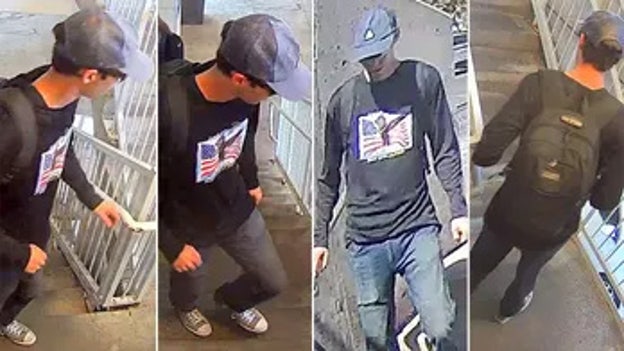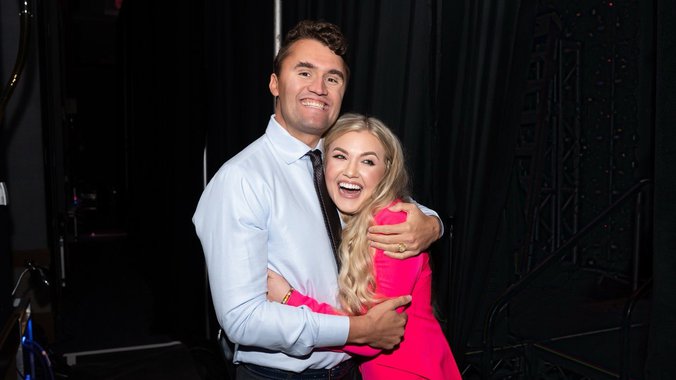The death of conservative commentator Charlie Kirk continues to dominate headlines, but a new twist has left America stunned. Tyler Robinson, the 27-year-old man arrested in connection with Kirk’s death, has released his first official statement from custody. In it, he directly confesses to the killing—but his account is riddled with inconsistencies, contradictions, and unexplained gaps that have only deepened the mystery.
The confession was meant to bring closure. Instead, it has opened a floodgate of suspicion: is Robinson truly the man responsible, or is he shielding someone else? And if so, who—or what—is he protecting?
A Confession That Raises More Questions Than Answers
Robinson’s statement, delivered through his attorney and broadcast on national television, began with an unequivocal declaration:
“I alone am responsible for the death of Charlie Kirk. No one else should carry this burden.”
The words were stark, seemingly designed to silence speculation. But as he expanded on the details, contradictions emerged almost immediately.

Robinson insisted he “followed Kirk from an event and ambushed him in the parking lot.” Yet investigators had already confirmed Kirk collapsed inside a secured venue, surrounded by his staff and security. Robinson said he “disposed of the weapon in a river,” but police had earlier recovered the firearm inside a car registered to a different individual.
Perhaps most glaring was the timeline: Robinson placed the attack at 9:00 p.m., but security footage shows Kirk still addressing an audience on stage at that exact time.
Forensic evidence adds more confusion. Multiple sets of fingerprints were found on the gun, yet none of them conclusively matched Robinson. DNA traces at the scene belonged to at least two unidentified individuals.
In short, Robinson’s confession directly conflicts with the established record.
Why Confess If the Evidence Doesn’t Fit?
The contradictions have left the public and legal experts baffled. Why would Robinson claim responsibility if the evidence does not tie him firmly to the crime?
Several theories have emerged:
-
The Sacrificial Pawn – Some believe Robinson may be covering for someone else, possibly a close friend, family member, or even a powerful figure. By confessing, he deflects scrutiny away from the true culprit.
-
Duress and Interrogation Pressure – Reports have surfaced that Robinson was interrogated for nearly 12 hours before he had access to a lawyer. Legal experts warn that false confessions under pressure are far more common than most people realize.
-
A Deal Gone Wrong – Others suspect Robinson may have been promised leniency or protection in exchange for a confession. If so, it would be a gamble with extraordinary consequences.
-
The Scapegoat Theory – A darker possibility is that Robinson is being used as a convenient scapegoat, taking the blame to shield higher powers whose exposure would ignite scandal.

Public Reaction: Outrage, Suspicion, and a Nation Divided
The confession has electrified the public conversation. Social media erupted within minutes, with hashtags like #JusticeForCharlie, #RobinsonConfession, and #WhoReallyKilledCharlieKirk trending globally.
Supporters of Kirk are furious. Many demand a deeper investigation, calling the confession “too clean, too scripted, and too contradictory.” One grieving fan wrote: “This feels staged. We want justice, not a cover-up.”
Critics of Kirk, though less emotionally invested, are equally unsettled by the inconsistencies. Even those who rarely agreed with Kirk’s politics acknowledge that justice must be based on truth, not expediency.
The atmosphere is one of mistrust—not only of Robinson, but of the institutions handling the case.
Investigators Under Pressure
The contradictions in Robinson’s confession have placed law enforcement agencies under a harsh spotlight. Critics accuse investigators of rushing to present a suspect in order to calm public outrage.
Rachel Lanning, a former FBI analyst, explained: “When a confession contradicts physical evidence, investigators have two choices: dig deeper, or accept the easy out. If they choose the latter, they risk sacrificing justice for convenience.”
Adding to the pressure are unresolved pieces of evidence:
-
Unidentified fingerprints on Kirk’s belongings.
-
Robinson’s cell phone records, which place him miles away at the time Kirk collapsed.
-
Reports of two unidentified individuals seen fleeing the scene.
Each unresolved thread points to a larger puzzle—one that Robinson’s confession does nothing to solve.
The Family’s Uneasy Silence
Charlie Kirk’s family has yet to issue a full public statement in response to Robinson’s confession. Privately, however, sources close to the family describe them as “deeply skeptical.”
“They don’t believe the story adds up,” one confidant revealed. “They want real answers. They want to know why the timeline doesn’t fit, why there are missing pieces. They don’t want a scapegoat—they want the truth.”
Their silence speaks volumes. In high-profile cases, families often become the moral anchor, demanding transparency. Their refusal to endorse Robinson’s confession underscores just how unresolved this tragedy remains.
The Legal Dilemma
From a legal perspective, Robinson’s confession presents a paradox. On one hand, courts often view confessions as powerful evidence of guilt. On the other, contradictions between a confession and physical evidence can render it unreliable.
Professor Martin Dorsey of Columbia Law emphasized: “Confessions must be corroborated. If they clash with the evidence, they collapse under scrutiny. Courts cannot—and must not—accept words that defy facts.”
Robinson’s defense attorneys have already signaled their intent to challenge the confession’s validity, alleging coercion and psychological pressure during his interrogation. If proven, the case against him could unravel completely.
The Larger Implications
The Robinson confession is more than a twist in a murder investigation—it’s a test of America’s trust in its institutions.
If Robinson is guilty, the inconsistencies must be explained. If he is innocent, then the justice system has already failed, punishing a man for a crime he did not commit. Either scenario threatens public faith in law enforcement, the courts, and the integrity of due process.
Beyond the legal system, the case carries heavy political weight. Kirk was not just a commentator—he was a movement leader, a figure who symbolized a cultural war playing out on campuses, in media, and across America’s polarized landscape. His death was always destined to echo beyond personal tragedy. Robinson’s shaky confession only ensures it will remain a national obsession.
Theories Multiply
Meanwhile, conspiracy theories multiply by the hour. Some claim Robinson is protecting a political insider. Others suggest shadowy networks engineered the confession to bury deeper truths.
Unverified leaks allege that Robinson may have received money transfers in the weeks before the killing—possibly payment to take the blame. Investigators have not confirmed these claims, but their circulation has only intensified public suspicion.
The longer the contradictions remain unresolved, the louder these theories will grow.

A Nation Haunted
The case of Charlie Kirk’s death was already one of the most shocking events in recent political history. With Robinson’s confession, it has become something darker: a riddle that refuses to be solved, a story where each answer spawns more questions.
Is Robinson guilty? Is he lying to protect someone else? Or has he been manipulated into shouldering a crime that others orchestrated?
Until the evidence is reconciled with the confession, the truth remains buried—and America remains haunted.
Conclusion: Justice Demands More
Tyler Robinson’s statement was supposed to provide clarity, closure, and justice. Instead, it has sown doubt, mistrust, and suspicion. His contradictions are too glaring to ignore, and the unexplained evidence hangs over the case like a storm cloud.
If Robinson is guilty, the truth must be proven beyond reasonable doubt—not simply accepted because he said so. If he is innocent, then the real k!ller is still at large, and a miscarriage of justice may already be unfolding before the nation’s eyes.
For now, one question remains unanswered—the same question millions are asking online, in the media, and in hushed conversations across America:
Is Tyler Robinson the true k!ller of Charlie Kirk, or just the man chosen to take the blame?
Until that question is resolved, the shadow over Kirk’s death will only grow darker.




